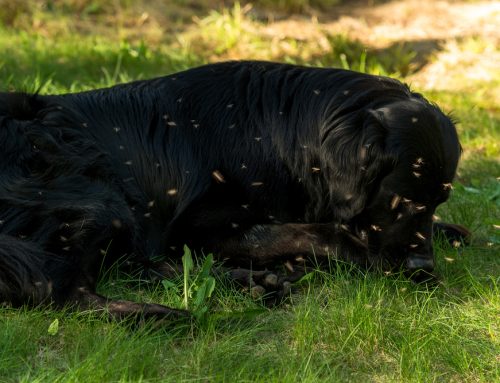
Everyone knows that wild animals can carry rabies. We have seen stories about rabid raccoons or opossums. When it comes to our pets, though, most people feel that rabies is a pretty rare risk. The truth is that it is more common than most people realize.
Just last month an unvaccinated kitten in Colorado was determined to be infected with the deadly virus. Eight people, including 5 children, who were exposed had to undergo rabies treatments. Educate yourself about rabies and its risks so that you can protect your family and pets.
Here are some key things to know about rabies:
• Rabies is caused by a virus that is zoonotic. A zoonotic disease is one that is transmissible to people. After a person is exposed symptoms may not occur for several months. The disease is usually fatal. Exposure to rabid dogs (not wild animals) accounts for 90% of the human exposures and 99% of human deaths worldwide. In 2010, the CDC reported 6,153 cases of rabies in animals in the United States.
• Do not allow your pets to interact with wildlife. All mammals can be potential carriers. Look for signs of unusual behavior. These may include unprovoked aggression, overly friendly behavior, incoordination, vocalization, paralysis, or daytime appearances by normally nocturnal animals.
• Rabies must be transmitted through a bite or scratch. Avoid contact with suspicious animals. Be sure children do not handle wildlife. If you think that you have come into contact with a rabid animal, contact your physician immediately for instructions. If you have been bitten or scratched, report the encounter to the health department.
• If you do see an animal that is displaying unusual behavior, report it immediately to your local animal control or fish and wildlife department.
• Safeguard your home against entry from wild animals. Make repairs in a timely matter so that curious critters don’t make it inside. Don’t forget one of the leading carriers of rabies is the bat.
• Keep all pets up to date on their rabies vaccinations. The disease is entirely preventable, and there is no reason any animal should be unprotected.
We have come a long way since Old Yeller, but rabies is still a real risk for our family pets. By staying informed and taking logical precautions, though, you can keep your pets and family safe.






